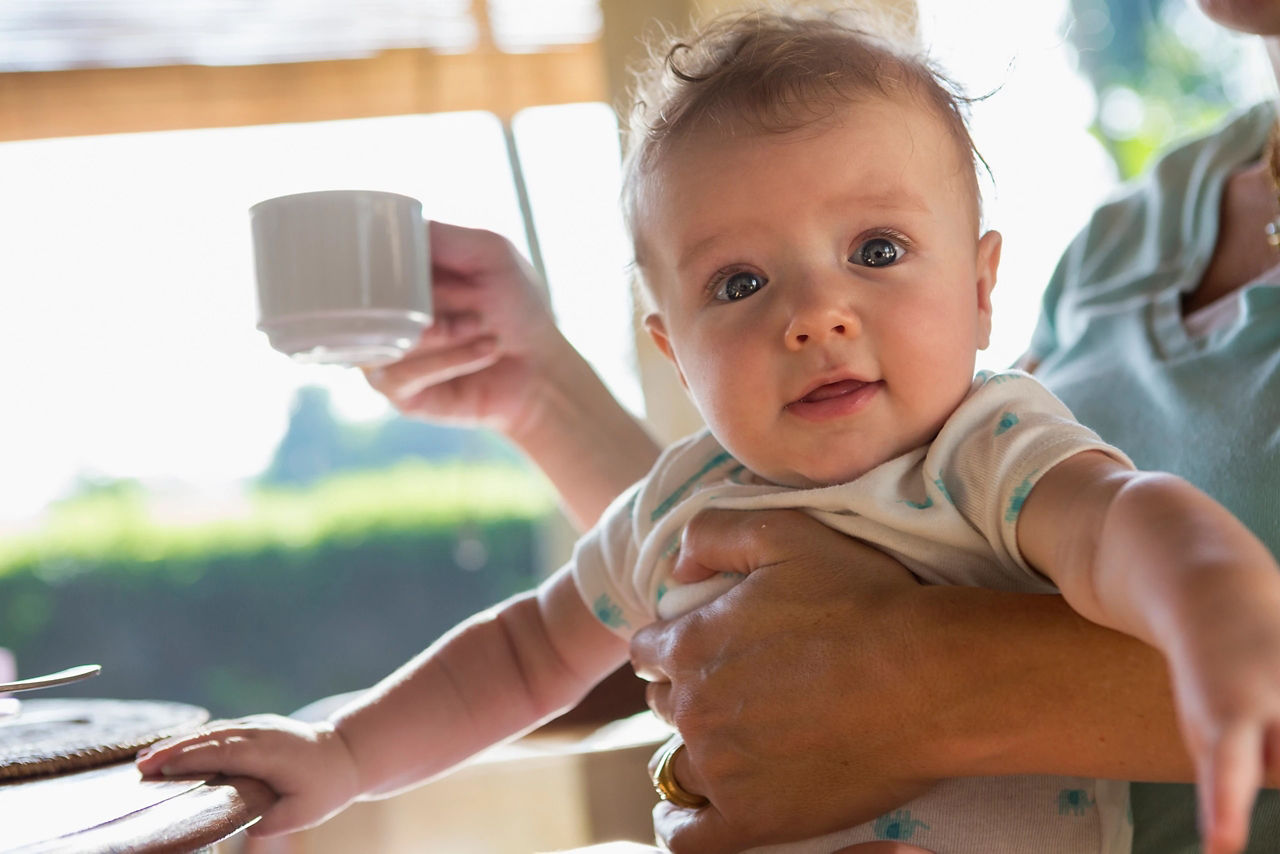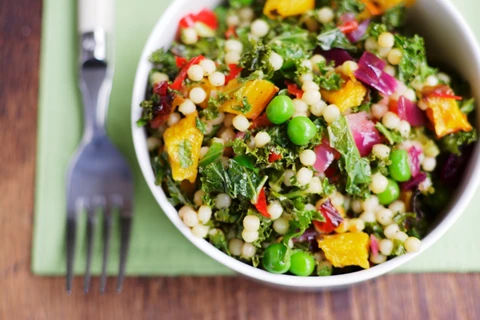- Tea contains 44mg of caffeine per 200ml cup (range between 40-120mg depending on strength and size)
- Instant coffee contains 78mg of caffeine per 200ml cup (range between 27-173mg)
- Freshly brewed coffee contains 111mg per 200ml cup (range between 102-200mg)
- Decaffeinated coffee contains 4mg of caffeine per 200ml cup (range between 3-12mg)
- A 30ml shot of Espresso shot contains 40mg of caffeine (range between 30-90mg)
- A 500ml bottle of a Cola drink contains 29mg-32mg
- Hot cocoa contains 8mg per 200ml cup
- A 45g bar of milk chocolate contains 11mg, whereas dark chocolate contains 31mg per bar
The exact amount of caffeine will vary according to cup size, brewing methods and brand of tea or coffee.
A few cups of tea or coffee each day will probably not cause you or your baby any problems. However, if you suspect your baby is reacting to caffeine, you could try avoiding caffeine from all sources (coffee, tea, soft drinks, chocolate) for two to three weeks. But remember, however, that stopping all caffeine may result in headaches or other symptoms for you. If over stimulation from the caffeine is causing your baby’s sleeplessness, you should see a more normal sleeping pattern within two weeks of dropping the caffeine.
If you would like to discuss your diet in breastfeeding further why not contact our Careline.





